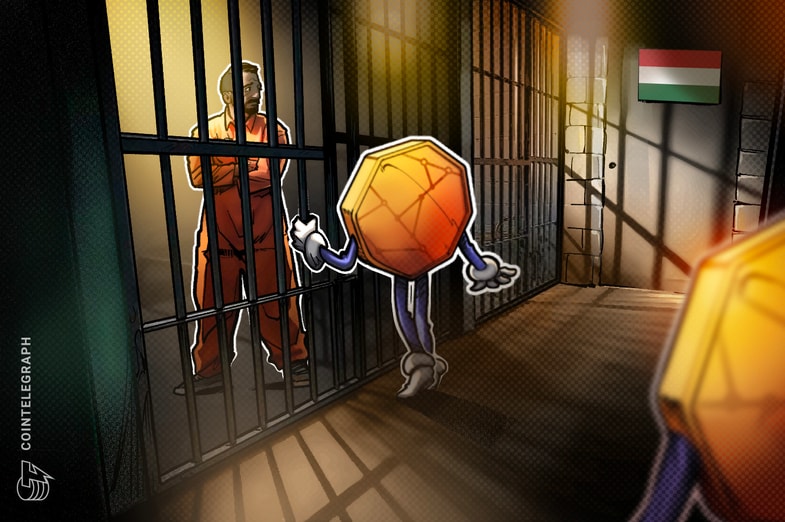Key takeaways
Hungary passed a law that criminalizes using and operating unauthorized crypto exchanges. Both users and service providers may receive prison sentences.
The law took effect on July 1, 2025, but no licensing process or list of approved platforms was available at launch.
MiCA sets EU-wide licensing standards, but Hungary’s implementation left service providers in legal limbo.
Some platforms like Revolut and Bitstamp suspended services in Hungary, while others remain active amid the uncertainty.
Hungary has amended its criminal code with strict regulations for crypto assets. Having come into effect on July 1, the new crypto rules introduced prison sentences for unauthorized crypto exchange service providers and users.
The law criminalizes crypto transactions carried out through unlicensed platforms for both individuals and businesses. According to the law, such transactions may result in prison time that increases based on transaction value. The new regulations stand out as one of the strictest enforcements for crypto in the EU.
This article delves into the details of the new crypto rules in Hungary and the response from service providers and includes tips to avoid going to prison for crypto trading.
Hungary’s crypto law in 2025
Under Hungary’s new crypto criminal code, any crypto transaction that isn’t facilitated by a certified provider is considered illegal. It applies to both unauthorized service providers and users transacting through them.
Individuals trading on unlicensed platforms face the following sentences based on transaction value:
Between 5 million and 50 million Hungarian forint: Up to two years in prison
Between 50 million and 500 million HUF: Up to three years
Above 500 million HUF: Up to five years.
Unauthorized exchanges face even harsher penalties:
Up to 50 million HUF: Up to three years in prison
Between 50 million and 500 million HUF: Up to five years
Above 500 million HUF: Up to eight years.
However, Hungarians may have a hard time complying with the new crypto rules. The law took effect without an authorization process in place, and it doesn’t explain how to legally access or offer crypto services.
How to comply with Hungary’s criminal code for crypto
The law requires crypto exchange service providers to be licensed. But as of July 25, 2025, there is no way to apply for a license or check which providers are approved. Hungary’s Supervisory Authority for Regulated Activities (SZTFH) is responsible for issuing detailed guidance. It has 60 days from July 1 to publish the rules.
This leaves both users and service providers in a legal gray area. Individuals are expected to trade only through licensed platforms, yet no such platforms have been named. Even using a prominent global exchange may qualify as a criminal offense under the new rules. Until things become clearer, crypto use carries legal risks in Hungary.
For service providers, the path to compliance is to apply for a license once the process is defined. However, as the regulator has not released any guidance, no service provider can apply or operate legally as of July 2025.
EU’s crypto regulations and implementation in Hungary
The crypto crackdown in the Eastern European country came months after the EU introduced its unified crypto framework, Markets in Crypto-Assets (MiCA) Regulation. Effective since December 2024, MiCA sets common licensing, governance and consumer protection standards for crypto service providers across the union.
MiCA aims to create legal clarity and reduce regulatory fragmentation across the EU while bringing stability and investor protection to the crypto industry. According to the law, a service provider acquiring a MiCA license in one EU state can legally operate in all member states.
MiCA requires EU member states to implement the law through national regulations. To comply, Hungary passed Act VII of 2024. The law designates the National Bank of Hungary as the authority responsible for licensing crypto service providers under the EU crypto regulations and overseeing compliance with MiCA. The deadline that was given to platforms for compliance was July 1, 2025.
However, Hungary’s crypto law of 2025 created confusion in the industry. It introduced criminal penalties for unlicensed activity but offered no clear way to follow the rules. While the law requires the use of certified service providers, it launched without any public list of approved platforms or a licensing procedure in place. This leaves users unsure which exchanges are legal to use and providers unable to register. Until the authorities publish detailed guidance, both sides remain in legal limbo.
Did you know? MiCA includes special rules for crypto asset service providers. Under MiCA, service providers have to maintain minimum capital reserves, follow strict transparency and governance standards and notify regulators of major incidents like security breaches.
The response from crypto service providers in Hungary
The uncertainty has caused confusion among crypto service providers; some halted services right away. Others continued operating, hoping their EU licenses would be enough.
UK-based fintech company Revolut was among the first to take action, and it interpreted the new regulations as a crypto ban in Hungary. The company suspended all services in Hungary immediately after the law came into force. Hungarian users can no longer trade, buy, sell or transfer crypto assets on the platform. Withdrawals were also halted briefly but later reinstated on July 14.
Bitstamp took a similar step. It paused trading for Hungarian users but kept deposits, withdrawals and staking available.
Other global crypto exchanges such as Binance, Coinbase and Kraken remain fully operational. Coinbase and Kraken secured a MiCA license in June 2025, while Binance is yet to receive it as of July 2025.
Local exchanges have taken a cautious stance. CoinCash, for example, stopped welcoming new customers while continuing to serve existing users.
Until authorized validators are established and the validation framework is published:
Users cannot legally buy, sell or swap crypto in Hungary, as no valid certificates can be issued.
Participating in exchanges outside this framework may carry criminal liability, particularly for higher-value transactions.
Thus, users should exercise extreme caution and avoid high‑value crypto activity.



